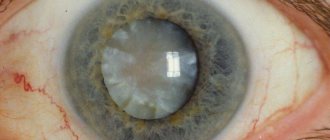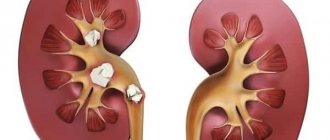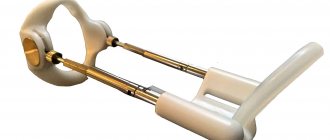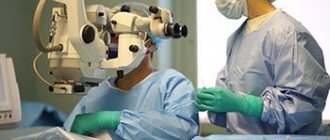Minimally invasive, gentle techniques
The use of minimally invasive, gentle techniques ensures the completion of the rehabilitation period without special restrictive measures. But the patient experiences certain symptoms associated with the stone crushing procedure itself and the process of postoperative stone removal under the influence of medications. Urination may be frequent and slightly painful. Small traces of blood are observed in the urine for several days. In the postoperative period, visually visible stones are excreted in the urine. The appearance of pain is relieved by taking antispasmodics, and a slight increase in temperature is possible. The patient is told in detail about such symptoms and correct behavior during the rehabilitation period upon discharge.
Types of kidney surgeries
Doctors are aimed at maximizing the preservation of the organ, therefore, if possible, they remove only the affected part. Sometimes such an operation is not possible or is not predicted to bring the desired result. In this case, radical nephrectomy is indicated.
Open kidney surgery involves a single incision (13 cm), through which the necessary surgical procedures are performed.
During laparoscopic surgery, several small incisions are made through which the organ is removed using special instruments and small cameras.
If cancer is diagnosed, the patient is prescribed partial (laparoscopic kidney resection) or radical (laparoscopic nephrectomy), depending on the degree of tissue damage, surgical treatment of kidney cancer.
The State Urology Center actively uses laparoscopic principles of surgical treatment of diseases of the genitourinary system. These methods have a number of advantages over open operations:
- trauma is minimized;
- the duration of hospitalization and postoperative rehabilitation is reduced;
- pain decreases after surgery;
- There are no large and rough postoperative scars.
Contact the State Urology Center for an effective solution to any problem.
Our innovative equipment, highly qualified doctors, and many years of experience are the key to high-quality and effective medical care. August 4, 2020
Akopyan Gagik Nersesovich - urologist, oncologist, doctor of medical sciences, doctor of the highest category, professor of the department of urology of the Federal State Autonomous Educational Institution of Higher Education First Moscow State Medical University named after. THEM. Sechenov
Clinic of Urology named after R. M. Fronshtein of the First Moscow State Medical University named after I.M. Sechenov invites you to an appointment with experienced urologists. To get an appointment with a qualified specialist, just fill out a short online application. Be sure to fill out all the fields, including a brief description of the symptoms (the “Information” column), specify whether you are interested in a secondary or primary appointment.
Pay attention to the “Attach file” button - it allows you to immediately send medical documents to the doctor in electronic form. This may include images, tests and other information that will be important to determine the diagnosis.
Still have questions? Call us by phone or! On a weekday, you can come for a consultation with a doctor within a few hours after filling out the online application. Do not delay visiting a specialist if you are concerned about your genitourinary health!
Purpose of the recovery period
The goal of the rehabilitation period after removal of kidney stones is to overcome the consequences of the intervention (prevent inflammation and bleeding, control the regeneration process), remove stone fragments from the body, and restore normal rhythm of life, including exercise and nutrition. Properly carried out rehabilitation measures ensure the effectiveness of ultrasound or laser crushing of kidney stones for a long period of time.
Is it possible to save a kidney when removing a benign or malignant tumor?
In Israel, if benign or malignant tumors are detected in the kidney, treatment is most often carried out surgically using the modern and effective method of laparoscopy.
These include diseases such as renal carcinoma, oncocytoma, metanephric adenoma or adenofibroma, papillary renal adenoma, mixed epithelial tumor, angiomyolipoma and others.
Such an operation allows you to preserve the healthy part of the kidney by removing only the tumor itself. It is also called kidney preservation surgery or partial nephrectomy. Unlike the operation of complete removal of the kidney (radical nephrectomy), this option allows the patient to save not one healthy kidney, but “one and a half” kidneys.
That is, in fact, the surgeon leaves part of the second kidney, which retains almost completely its functions and performance. This improves the quality of subsequent life and the condition of the person who has undergone such an operation.
Partial nephrectomy is usually performed in cases of tumors no larger than 4 centimeters in size. Although the decision to prescribe an operation is made by the surgeon in each case individually based on the examination and photographs taken.
In cases where the tumor has already reached a sufficiently large size or its location makes partial nephrectomy impossible, complete (radical) removal of the kidney is performed.
It is worth noting that nephrectomy is not always performed due to the discovery of a tumor. Often, kidney resection is performed if significant functional disorders in its functioning are detected, causing significant harm to the health of its owner. Some of the main reasons leading to kidney dysfunction are:
- disturbances in kidney function, leading to the constant appearance of stones that cause severe pain in the patient,
- hypertension associated with narrowing of the coronary artery,
- kidney cysts causing constant recurrences of urinary tract infections,
- some types of kidney cancer.
The detection of functional disorders does not always lead to surgical intervention, and patients often live for quite a long time with such a kidney. Resection is prescribed with the exception of cases of voluntary kidney donation when the disease or damage that occurs requires complete or partial removal of the organ.
After removal of a kidney, the patient can live normally for many years even with one kidney, since it can change, taking on all the functions of both kidneys and completely compensating for kidney failure.
Let's talk in more detail about the features of kidney surgery in the case of a cancerous tumor.
Kidney surgery is performed to cure a patient of a cancer that affects his entire body and is constantly progressing.
Today, it is most often performed laparoscopically. During a partial nephrectomy operation, the doctor removes only the tumor itself, trying to preserve as much as possible the healthy part of the kidney tissue.
In some cases, if necessary, the surgeon may also remove part of the lymph nodes in the areas adjacent to the kidney. Then the cut fabrics are placed in a special bag, which is removed through one of the holes. After the operation, the removed tissue is necessarily sent to the laboratory for examination.
In general, the laparoscopic method is minimally invasive and very gentle. Its implementation, unlike a conventional surgical operation in which a large incision is made, is carried out through several small holes (in the area of the navel, hip joint and lower abdomen). An endoscope camera and special instruments are inserted inside through these holes.
The obvious advantages of laparoscopy compared to conventional surgery are already visible from this description: after the operation, very inconspicuous scars remain, much less unpleasant pain and the patient’s recovery process becomes noticeably shorter. Also, the risk of postoperative infections and complications is significantly reduced.
Laparoscopic surgery is performed under general anesthesia and usually lasts no more than 2-3 hours.
Despite all the described advantages, partial or complete nephrectomy also has a number of possible risks of surgical and postoperative complications. To minimize them, it is extremely important to notify your surgeon and anesthesiologist as fully as possible before surgery about your personal medical experience and medical history.
Possible complications with any type of surgery most often include infections, bleeding, and damage to neighboring organs. With any laparoscopic surgery, there is a small risk that open surgery will be necessary.
In itself, such a transition does not relate to complications - the surgeon makes a similar decision according to the situation, in case of a medical need. However, the risk of any complications during laparoscopy, according to statistics, is relatively low.
The patient's hospitalization for such operations usually lasts about 3 days. After the operation, the patient is placed in a recovery room and then transferred for outpatient observation to the urology department.
If necessary, to alleviate the patient's condition, he may be prescribed painkillers. In the absence of any complications, the patient can return home within 4-5 days after the operation.
The recovery period for normal daily activities in operated patients usually takes from 10 to 20 weeks. After this, light office work is permitted.
In order to avoid the risk of any complications, it is extremely important to follow a number of special measures during the recovery period:
- maintain hygienic cleanliness by taking a daily shower with soap,
- for the first 8 weeks, it is forbidden to lift any kind of weights or expose yourself to any active physical activity,
- In view of the possible occurrence of severe dizziness and feelings of fatigue, it is recommended to avoid driving any vehicles.
After completing the recovery period, the patient must constantly monitor himself, the symptoms and sensations that arise, pay attention to the functioning of the kidneys, take medications with extreme caution and only after consulting with his doctor.
In the postoperative period, risk factors include smoking, consumption of certain medications with a high level of toxicity (Norfon, Walter, ibuprofen and others), any types of alcoholic beverages (including low-alcohol drinks), and lack of control over high blood pressure.
For certain diseases, such as carcinoma, six months after surgery, a mandatory repeated medical examination is indicated, including an ultrasound examination of the kidneys and a computed tomogram of the thoracic region.
At the same time, for those patients who have one kidney left, CT is prescribed with a low level of radiation and without the introduction of a contrast agent, in order to avoid the risk of kidney damage.
In addition to the method described above, similar operations in our medical center are robotic operations using the third generation robot “Da Vinci” (information about this here ). Robot-assisted surgeries have an even lower risk of complications and an even shorter recovery period.
How to resolve issues with organizing a trip to us for treatment
The patient will only need medical documents or an extract from them for this case, which can be prepared in Russian. You send them to our email: [email protected]
We translate them into Hebrew, leading specialists hold a consultation in absentia on them, and after a few days you receive an answer. Where is the list of diagnostic and treatment measures that we offer, what length of stay is required, accommodation conditions, cost of medical measures, accommodation, transfer and other organizational issues.
We have a special department that deals with organizational issues: meeting at the airport, transfer, ordering accommodation, accompaniment of an interpreter at all stages of treatment and diagnosis, excursion services.
We also have our own housing stock : these are fully equipped 2-3 room apartments. The apartments have everything: TV with satellite TV and Russian channels, washing machine, refrigerator, air conditioning, equipped kitchen, Internet. Usually, living in apartments is cheaper than hotels.
Our patients are provided with the following free of charge:
- accompanied by an interpreter in the medical center.
- transfer place of residence - medical center - place of residence
- mobile phone and local SIM card
- translation into Russian of medical documents received in Israel
Payment methods: no prepayment required, because... Payment for the medical program is made during the implementation of the program to the center’s accounting department.
Payment methods: cash (US dollars, Euros, Israeli shekels), credit card, bank transfer.
Control after treatment (after departure)
After treatment, you leave with documents that are translated into any of the languages you choose. But we are not saying goodbye to you - we continue to monitor your health. To do this, we maintain contact with our specialists, with whom you can contact on any issue regarding your recovery and receive the necessary recommendations.
DO YOU HAVE ANY QUESTIONS? All readers of our newsletter have the right to receive advice from an Israeli oncologist. By clicking the button below, you will be taken to the application page. In the “Select section” line, select “Oncology”, fill out the application form and send it to us.
♦♦♦
THANK YOU FOR READING OUR ARTICLE TO THE END. You may be interested in subscribing to our weekly newsletter “Recipes for the health of world medicine” to keep abreast of the most modern technologies of world medicine for treatment, diagnosis and prevention in the field of gynecology and obstetrics, gastroenterology, dermatology, cardiology, surgery, plastic surgery, dentistry, ophthalmology , orthopedics and oncology, as well as a healthy lifestyle. In addition, all subscribers to our newsletter are entitled to receive benefits for treatment and diagnostics in Israel. The list of benefits can be found at this link.










